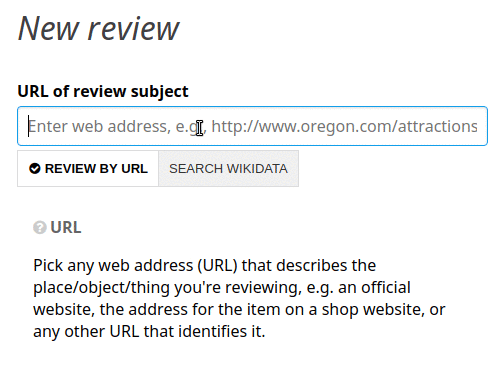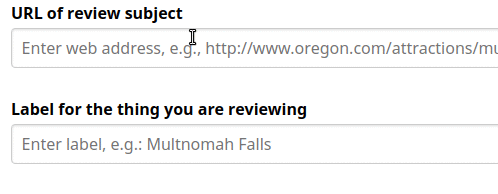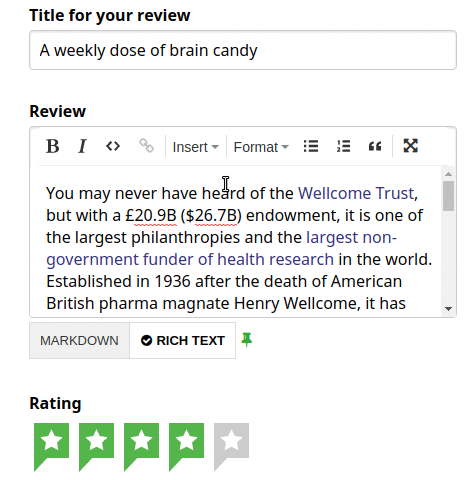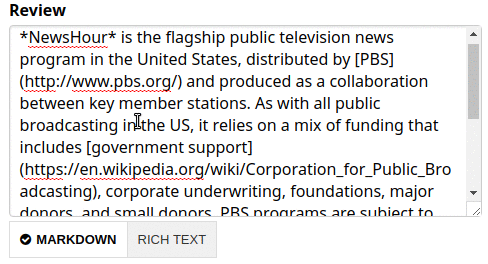When you have a review subject like Les Misérables, it’s good to have additional metadata. Are you talking about the book by Victor Hugo? One of the many film and TV adaptations? The musical? In future we’re planning to add metadata that’s useful for specific domains (e.g., opening times for restaurants, or publisher info for books), but for now, we’ve added support for a short text description.
Wikidata, which we support as a source for selecting review subjects, already has these descriptions for many items. For example, it describes the book “Nutshell” (reviews) as the “17th novel by English author and screenwriter Ian McEwan”. When you review an item via Wikidata, this description (in all available language) is automatically imported. We’ve now also added these descriptions to all reviews that had a Wikidata URL associated with them, and they will be updated automatically every 24 hours.
An automatically updated description looks like this:

For reviews that are not associated with a Wikidata item, you can add or edit the description after writing a review.






